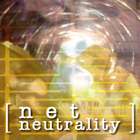
|
|||||||||||||
UN NAMES 10 MOST UNDER-REPORTED STORIES FOR 2006 Every year, the United Nations publishes a list of the 10 most serious stories most overlooked by global press. Developing nations, whose situations are often misunderstood or dismissed by news media, as too complicated, intractable, or of marginal relevance, take the spotlight this year. [Full Story] PRESS FREEDOM IS EVERYONE'S FREEDOM The freedom of the press is the freedom of the American people. Not its guarantor, not a metaphorical representation of freedom as an idea, not even merely a mainstay of a free system. A free and independent press is American liberty at work, building and defending itself against the slide toward secret or arbitrary exercise of power, as conceived within or beyond the legal process. [Full Story] CHINA PLANS "SMOKELESS WAR" AGAINST PRESS, DISSIDENTS China's president Hu Jintao has reportedly called for an intensive crackdown on media liberties. While China's government has sought to project an image of a more market-oriented, open system, it continues to forbid basic press freedoms and still persecutes journalists at an alarming rate. [Full Story]
|
THE OPEN INTERNET IS A FORCE FOR DEMOCRACY & OPEN GOV'T, NOW IT IS UNDER THREAT FROM THOSE WHO WISH TO BOTTLENECK THE FREE PRESS 9 August 2007 The concept of 'net neutrality' refers to the current state of affairs in the free democracies of the world, where those who control the physical infrastructure of the Internet are not allowed to police its content or to charge for provider-user access. It is a vital ingredient in the make-up of the Internet, because it guarantees the freedom of information that makes the web so useful to free society and so valuable to those who do well what works in that open environment. But the US House of Representatives last year voted to end net neutrality with the COPE Act (Communications Opportunity Promotion and Enhancement). The language of COPE would permit major telecommunications companies to control what content their subscribers would be allowed to see. It would allow them to charge content-providers for 'visibility', or for speed of bandwidth, favoring not the most interesting material or the most thorough of reporters, but rather the wealthiest corporations in the media game. The result would be: independent voices would be nearly stamped out by major players; bloggers would not be able to compete with major sites like Yahoo! or MSN, which would (one imagines) easily be able to pay the extra 'bandwidth access' fees the telecoms would assess; information would suffer from a 'mainstreaming' effect, whereby all prominent sites routinely feed the same language, taken from the sames sources, into the same type of news content, marginalizing more analytical or academic materials; the Internet would belong to the ISPs and not to its users, be they content-creators or end-users. Sen. Joe Biden (D-DE) has pointed out in hearings on the Senate floor that the 'Bell companies' had "literally nothing to do with" creating the internet. AT&T even enjoy the unique distinction of refusing to participate in its creation. They already charge at both ends of the Internet experience: both end-users and content-providers have to pay access fees to have a connection to the world wide web, which, incidentally, has been the most profitable area of the telecom sector over recent years. The direct effect of any legislation permitting the currently prohibited practice of stratifying bandwidth to direct pre-paid content to more users would be to 'bottleneck' the free press. The First Amendment to the US Constitution specifies that: "Congress shall make no law [...] abridging the freedom of speech, or of the press..." Any law permitting the constraint of the freedom of access of people connecting to the Internet to information available across its fibers would be a very direct abridging of the freedom of speech and of the press. The Internet has allowed the 'press', i.e., all media whereby information is distributed from those in the know to the People, to expand its freedom to unprecedented levels. This has been good for all involved, has helped involve ordinary citizens in the political process, has helped create unimaginable profits for business, has created a new digital economy where freedom of information is a basic foundational component. To create an Internet bottleneck, where all traffic is partitioned into the (minority) high-priced high-speed service and the (vast majority) marginal, slower-access fibers, is to squeeze the vast new digital media culture into a space that cannot adequately serve its needs. Net neutrality is the only way we can know that there are not more dirty tricks being played by political figures whose ideas we do not share, the only way we can ensure that research that is helpful to all people, but is poorly funded, be available to those in a position to use it for the good, the only way we can be sure that information which would not fit the predetermined 'official' chronicle of events be able to surface and play its necessary role in public life. In short, without net neutrality, the Internet is just cable television with a very limited visual landscape and a slower pace. And cable television suffers from one fatal flaw: everything is bought and paid for, leaving nearly zero room for any content of a strictly humanitarian or civic nature. A free society needs that information to exist, and ours has not only created the platform to allow for it inexpensively and on a vast scale, but we have adjusted to the digital realm in such a way that we now require the Internet to maintain that type of information flow. [s]
VERSIÓN EN ESPAÑOL: El concepto de la 'neutralidad de internet' se refiere al estado actual en los países libres, donde aquellos que controlan la infraestructura física de internet no pueden manipular ni controlar el contenido de los que publican contenido en esa red. Es un ingrediente elemental para garantizar la libertad de información que hace que la web sea tan útil y tan valiosa para la sociedad libre y abierta. [Texto completo]
BACKGROUND: Journalist Bill Moyers explains how Net Neutrality is really about stipulating for all media regulations an 'Equality of Access provision' like that imposed on AT&T after "Free Press and SavetheInternet.com orchestrated 800 organizations, a million and a half petitions... a top-shelf communications campaign. Who would have imagined that sitting together in the same democratic broadband pew would be the Christian Coalition, Gun-owners of America, Common Cause and MoveOn.org?" [Go to video] NET NEUTRALITY ACT: SEN. DORGAN EXPLAINS LEGISLATION TO PRESERVE THE OPEN INTERNET S.215, the Internet Freedom Preservation Act, sponsored by Sen. Byron Dorgan (D-ND) and Sen. Olympia Snowe (R-ME) seeks to ensure the openness of the internet is protected against attempts by major telecommunications providers to segregate internet content and to charge for visibility. Sen. Dorgan explains how such business strategies would have a chilling effect on free expression and innovation. [Go to video] DEATH OF THE INTERNET: WHY NET NEUTRALITY IS VITAL TO THE INFORMATION SOCIETY Lays out the rudimentary principles of NET NEUTRALITY, the concept which has governed the open, global internet until now, wherein no network managers can control what content you are able to view over the internet; that standard is now threatened by major phone and cable providers (ISPs) and by legislation passed by the House in 2006. [Go to video] 'COPE' ACT FAVORS TELECOM STEERING OF WEB TRAFFIC The US House of Representatives passes Communications Opportunity Promotion and Enhancement Act (COPE) in 2006. Legislation, if it were to become law, would allow internet service providers to control what content their customers would be allowed to view online, which websites they could use, potentially what type of information they would be allowed to send or to publish. It has been seen by many as the beginning of the end of the Internet... [Go to video] 'OBJECTIVELY VERIFIABLE TRUTH NOW SUSPECT' The foundation of a free society is a press with the freedom to criticize instruments of power and influence and to reveal wrongdoing as it actually takes place. War is not a sufficient reason to institute a system of broad censorship criteria or to rein in the news media, as if they posed a direct threat to the wellbeing of the nation. But increasingly, it appears that American news media are intolerant of facts as such, waiting for members of the government themselves to come forward with complaints. [Full Story] AT&T SUED FOR VIOLATING LAW IN NSA DOMESTIC SPY PROGRAM AT&T was once the nation's telecommunications monopoly, and abuses there led to the break-up of the Bell monopoly and the regulation of telecoms, with the intent of encouraging competition and achieving the goal of forcing providers to serve the customers first. Now, the Electronic Frontier Foundation has filed a lawsuit alleging that the telecommunications giant has violated federal law by assisting the government in spying on innocent Americans without any court authorization. [Full Story] GOOGLE TO COLLABORATE IN CENSORING INFORMATION DELIVERED TO CHINESE USERS The premier internet search engine Google has launched a new Chinese service, under the domain Google.cn, which it will voluntarily censor in keeping with the mandates of Chinese authorities. The announcement came earlier this week, as the Davos trade talks opened and on the same day as China's government announced it was ordering the closing of a weekly newspaper known for publishing articles on topics the Chinese Communist party's propaganda office had banned or which included criticism of government policy. [Full Story]
| ||||||||||||
|
|||||||||||||
















